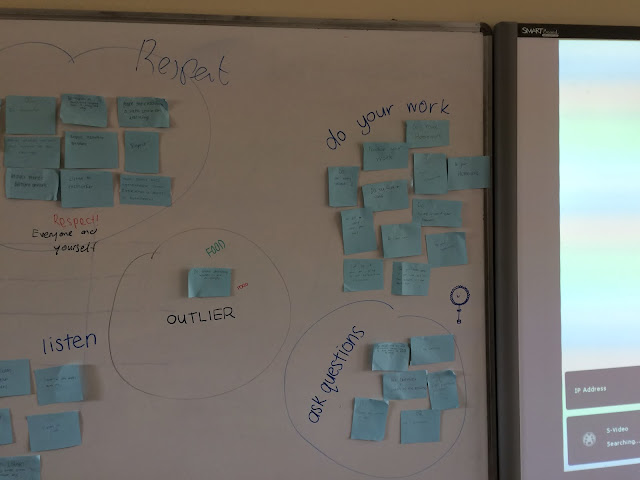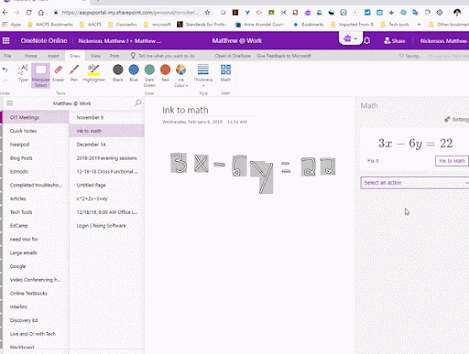A vision for a 21st Century School
As I am stimulated more and more by the incredible ideas floating around in places like twitter for educational reform, I am struck by what a sweet spot we seem to be in, in terms of the possibilities for real improvement in the standards and usefulness of the educational system over the next decade. However when I revert to my day job as a teacher and I see the educational landscape in the country I am struck by how many world’s apart we still are in terms of implementation. In fact my fear is despite the opportunities available, if we do not begin to create real action plans for the change we believe is necessary the system will continue on as it always has and the chance for real improvement will be lost.
My belief is that a lot of the raw ideas being generated need to be further refined into realistic goals, action plans and targetable outcomes that can be measured and assessed going forward.
The start of this process is this shared document which through its targeted headings will begin to give structure to a great educational plan built from the bottom up that will put us on a path to improvement in the education system that is real and creates the change we desire .
Targeted Headings to be detailed in future:
- Profile of the Teacher:
- Time Allocation of Teacher Day:
- The Makeup of the Staff of a School:
- The Building:
- The Equipment/Learning Materials:
- Partnerships with NGO/Corporates:
- Teacher Incentives:
- Assessment:
- School as the center of the community:
- Inter-school networks:
15 May 2015
Born lots of thinking and a spark of inspiration at SAPA 2015 conference Cape Town
Needs and Problems and Opportunities
- Cape Town needs densification of both housing and schooling to become a thriving city
- Education needs reform to reflect modern best practice and to equip students will skills needed for the future
- Schools don’t generally change quick enough to adapt to the environment because there are little incentives to do so and schools are generally not well equipped in managing the process of “change”
- Education system is generally very inflexible and stakeholders with a lot of power are generally very resistant to change and because of that power able to do so fairly succsesfully
- Outstanding teachers and leaders are forced out of the system too early( mandatory retirement at age 65 ) and inefficient unmotivated teachers stay in the system too long
- Biggest barrier to entry for new schools structures are high cost of land for school builind (capital expenditure to start is prohibitive and prevent the many experiments that are necessary to find new innovative solutions). Older more established schools have all the property and so barriers to entry for new schools are high .
- Often many of the most talented teachers are prepared to work a lot harder for 20-30 % extra income , and a guess is because of their efficieny they could add additional time to their work load without suffering exhaustion
- THe internet has presented economies of scale opportunities for learning like never before
- The internet has presented flexibility of learning opportunities like never before
- It has also presented learning management opportunities like never before , free Google Apps for Education. Staffroom , fairly inexpensive per student
Basic idea born out of these facts
Create a new modern type of school that takes all the weaknesses of the current system and uses them as an opportunity to be used and exploited for the new custom designed school . And also takes opportunities for synergy and mututally beneficial relationships with the current school system and designs that into the process to.
Rough characteristics
- Either not for profit school overall structure(but current school is paid rent for the use of their building to fund new capital infrastrure and make the venture mutually beneficial ), and the best teachers are reimbursed for their time well and given a sense of freedom. Also they can keep their current jobs and so risk is lower for them and new school experiment
- The new school rents premise from the current school (current schools gains new income for expenditure on infrastrucuture) and the teachers employed receive profit share based on performance of school.
- Best Teachers are chosen for the job ,based on videotaped lessons over a longer period of time , deep interviews and assesment of character compatibility with vision of school
- Good Teachers forced into retirment are used win win
- Students teachers are used and given the oppurtunity to become master teachers by learning on the ground from day 1 and also learn new skills . Also the financial burden on the school is low on these types of workers . Try to assist these learners in getting bursaries etc . Also stringent selection process for these students
- Schools would start small and stay relatively small to be non threatening to parent school and to also act as a type of experiment where stuff can be learnt in the more experimental environment and then imported into mainstream parent school .Probably an intake of 15 students per year for 5 years getting up to about a 100 students after 5 years .
- Good relationship between parent school and new experimental school, win win relationship where both parties gain something.
- New school will be much more flexibile and adaptble but hopefully keep with it the good stuff about the parent school and also brand recognition.
- Hopefully funding could come from bodies interested in experimnts in Education . Shuttleworth founndation , Gates Foundation etc
- Also need the involment of socialworkers , physcologists , researchers , mindfulness training, and school researchers ,economists and people interested in education and creating something that is new and fantastic and helps move south africa forward
- Extensive research and planning is done before setup - consult everyone you can in interviews who may have experience who could help.
- Possibly students could be registered under parent school to save admin etc
- During the day time students go to public libraries, outings , job shadows and other appropriate spaces to work that have no cost for land attached or to one of the parents) houses to work parents can be reimbursed for use of house. But ideal oppurtunity for group work and team work and planning etc, and then meet in big groups later.
- Involve parents in this type of schooling more , more connected and involved in their childs education




Comments
Post a Comment